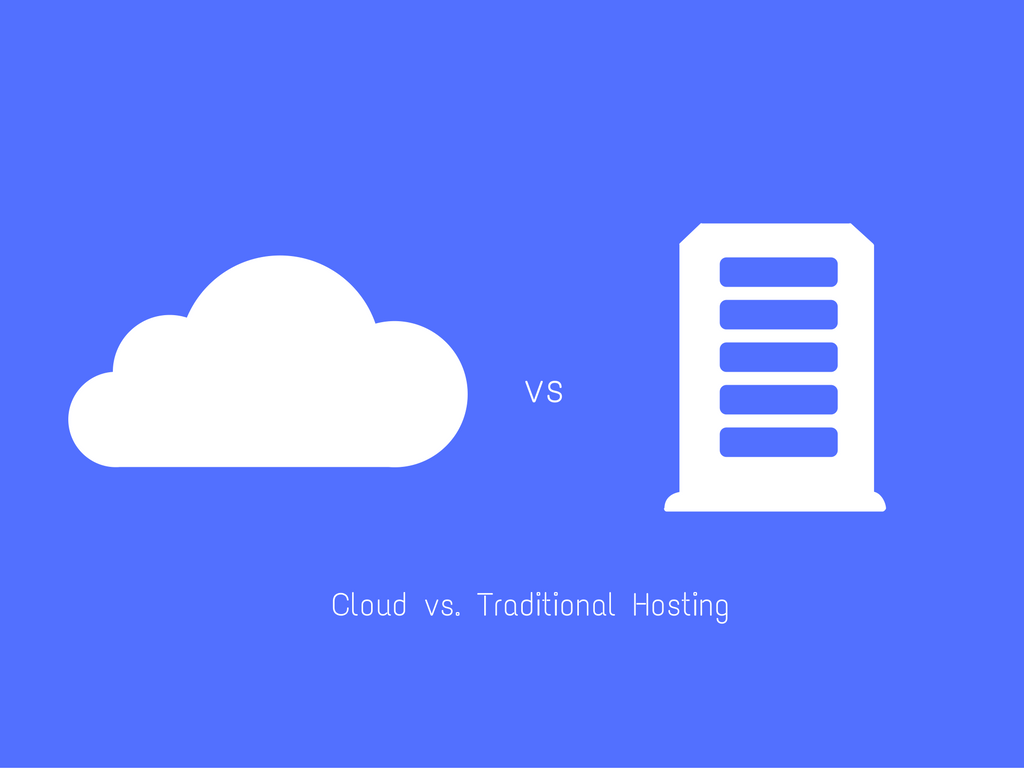Cloud Hosting vs. Traditional Hosting: Why Hosting Your Blog in the Cloud Is Better

Once you’ve made the decision to self-host your blog, you have a number of options to choose from. You could go the completely custom route and purchase a server and set up your own mini data center, but that’s probably more time consuming and complex than you need at this point. Or, in the more likely scenario, you can choose to go with a hosting provider.
Doing so, though, requires you to make an important choice: Do you go with cloud hosting, or a more traditional hosting route?
In the vast majority of cases, cloud hosting is the better choice for your blog, for several important reasons.
An Overview of Cloud vs. Traditional Hosting
When we refer to traditional hosting, the term encompasses a few broad categories, including VPS hosting, shared hosting, dedicated hosting, and grid hosting. While each of these options has its benefits, and are certainly viable options, for a busy blog, they aren’t always the best option.
Dedicated hosting is as close to having your own server as you can get without actually purchasing the server yourself. Under a dedicated hosting agreement, you have complete use of the server and there are no other clients using any space on it.
The hosting provider still manages all of the maintenance on the server, but the space is yours to do with what you need. While this arrangement offers a high level of security and higher speeds than shared hosting, it can also be more expensive, and the resources aren’t as scalable as they might be with other shared options.
Shared hosting is just what it sounds like: You’re sharing server space with other bloggers or businesses. While this tends to be a cost-effective option — and thus a popular choice — there are some drawbacks. When you share space, a sudden spike in traffic to either your site or another site on the same server can slow down service.
In addition to bandwidth issues, you might also encounter some issues with security or available space on shared servers, which can limit your scalability. Virtual private hosting is one solution to this problem, as it combines both shared and private hosting services by giving you dedicated space on a shared server, but bandwidth concerns are still an issue.
Finally, grid hosting is the precursor to cloud hosting. Instead of being hosted on one machine, your blog is hosted using resources from several machines, each of which does different parts of larger tasks. Cloud Windows server hosting is, in many ways, most similar to grid hosting.
However, instead of different processes being handled by different machines, your entire site is stored on several servers in different locations. That way, if there is a sudden spike in traffic or an issue with one server, your site can be accessed from one of the other servers without any noticeable different in speed.
The Advantages of Cloud Hosting
Beyond the clear advantages of speed and reliability for your site, cloud hosting is the best choice for several other reasons as well. If one server goes down, that doesn’t mean that your site goes down too, meaning no loss of data or site downtime.
In an era where even a few minutes of downtime a few times a month can mean a significant drop in traffic and revenue, cloud hosting’s record of nearly 100 percent uptime is meaningful.
Cloud hosting is one of the most cost-efficient forms of hosting available. You only pay for the resources that you use, and virtual hardware removes the need to purchase any additional equipment. This is especially useful when you need to scale your resources up or down: With cloud hosting, you the bandwidth or storage capacity of your site increases automatically, without the need to manually add or remove server space.
Because cloud hosting is a relatively new option, it’s still gaining acceptance in the blogging community. While other options are certainly viable, for a blogger who wants to combine the best possible reliability with a lower cost — and the ability to easily scale up as your following grows — cloud hosting is undoubtedly a solid choice.


No doubt cloud hosting is a great choice for serious bloggers but I think as a beginner it is not a bad idea to start with shared hosting plan. Shared hosting is affordable and you can update your hosting plan anytime.